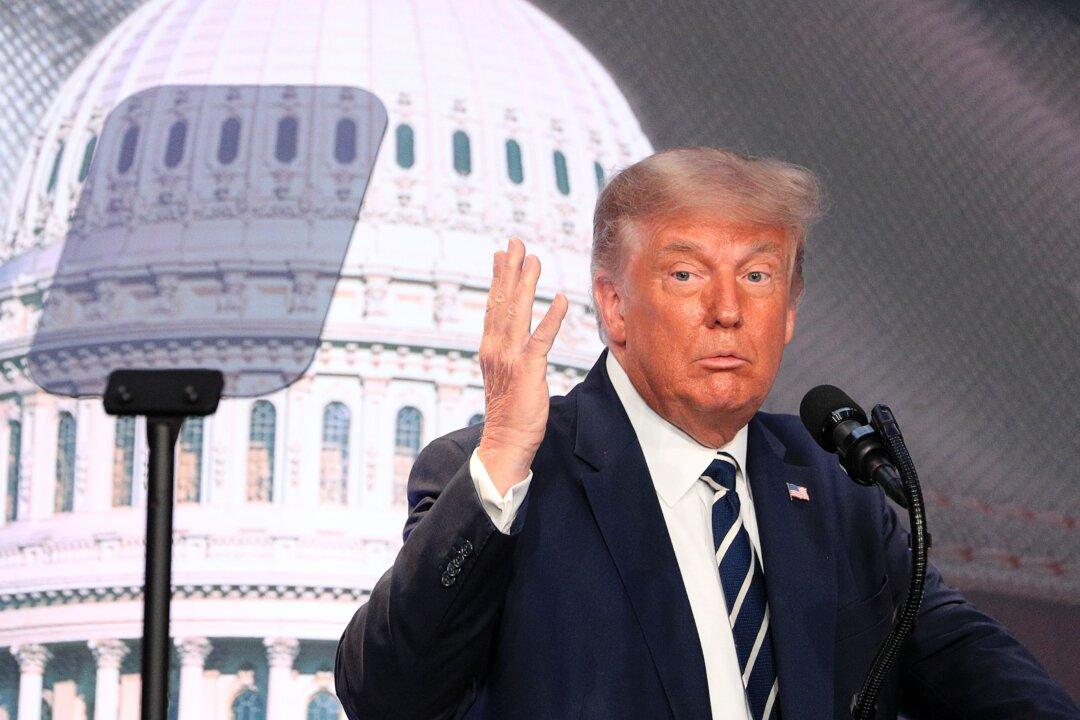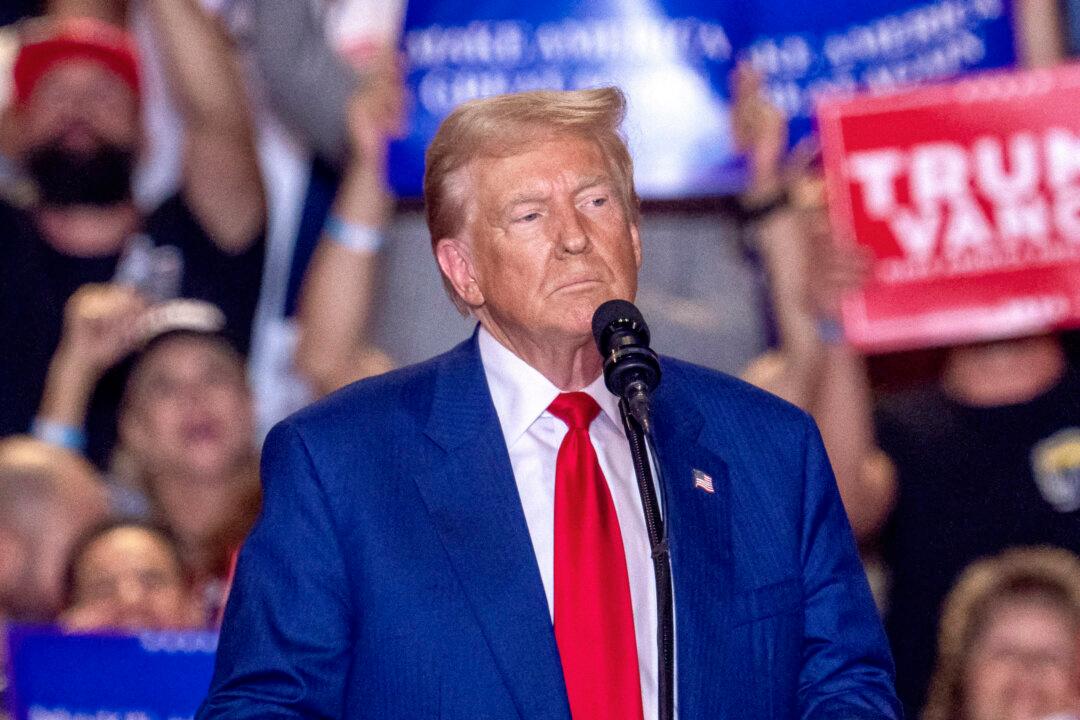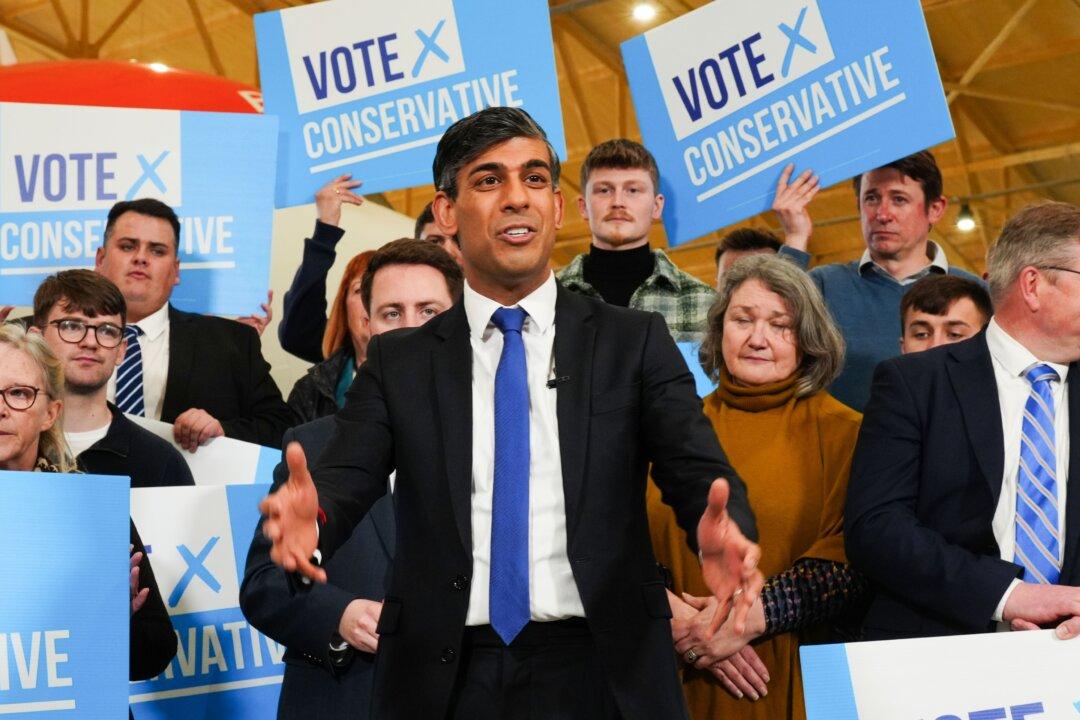President Donald Trump, in a Fox News interview airing Sunday, raised the possibility of decoupling the U.S. economy from China, a major purchaser of U.S. goods.
In a video excerpt, Trump initially told interviewer Steve Hilton “we don’t have to” do business with China, and then later said about decoupling, “Well it’s something that if they don’t treat us right I would certainly, I would certainly do that.”




